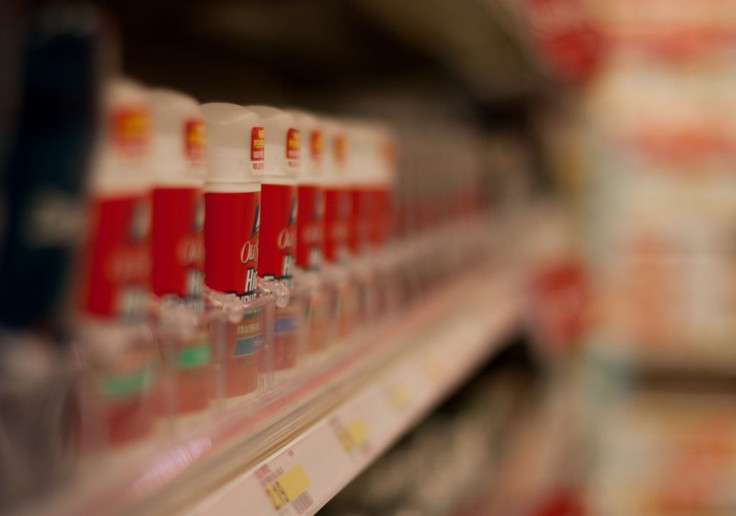Deodorant And Antiperspirant Alter The Skin Microbiome, But Researchers Can't Be Sure Of Long-Term Effects

New research published in the journal PeerJ gets closer to understanding how deodorant and antiperspirant use affects the skin's microbiome over time, namely the microbes in our armpits.
"Like the gut or the mouth, the human skin is covered with life," the researchers wrote. "The precise composition of the skin biome influences its effectiveness as a defensive layer against pathogens, and contributes to bodily odors." While they believe this has been clear since the 1950s, they found less is known about the extent to which human behaviors influence the composition of skin microbes.
Researchers recruited 17 citizen scientists to undergo armpit community sampling. Five of the participants they recruited did not use deodorant or antiperspirant; five regularly used deodorant; and seven regularly used antiperspirant. Product use was monitored over the course of eight days.
On day one, participants went about their normal routine, but on days two through six they were asked to not use any product. On the final two days, seven and eight, all individuals, including those who did not normally use these products, were asked to use Secret Powder Fresh for women or Old Spice Fiji for men. Both products contained the active ingredient aluminum zirconium tetrachlorohydrex gly.
"We opted for more frequent sampling versus longer-term sampling to assess shorter-term effects of ceasing product use in order to achieve a balance across competing considerations including participant compliance, available budget, supplies, and personnel time," the researchers wrote.
Participants' armpits were swabbed for bacteria that researchers cultured in order to determine the amount of microbes growing on each participant. On days three and six, they did genetic sequencing to see if product use also affected microbial diversity.
Initially, they found antiperspirants had a negative effect on the amount of armpit microbes — but after one day of no product use, antiperspirant users had fewer colonies of cultural bacteria than deodorant users or no-product users.
This colony abundance increased on days two through five, when participants were asked not to use any product. However, when participants were asked to use the antiperspirant the last two days of the study, researchers found their respective bacterial counts declined.
As for the kind of bacteria, 62 percent of participants who didn't wear deodorant or antiperspirant had Corynebacteria — the type of bacteria associated with armpit odor — followed by various Staphylococcaceae bacteria (21 percent). Ten percent had a "random assortment of other bacteria."
These results actually varied among participants who entered the study already regularly using antiperspirant. Sixty percent of their microbes were Staphylococcaceae; 14 percent Corynebacteria; and 20 percent were considerd "other."
"Using antiperspirant and deodorant completely rearranges the microbial ecosystem of your skin — what's living on us and in what amounts," said lead study author Julie Horvath, head of the genomics and microbiology research laboratory at the NC Museum of Natural Sciences and an associate research professor at NC Central, in a press release. "We have no idea what effect, if any, that has on our skin and on our health. Is it beneficial? Is it detrimental? We really don't know at this point. Those are questions that we're potentially interested in exploring."
Horvath and her team can only speculate why discontinuing antiperspirant or deodorant use might have such disparate effects, though they noted the products their participants reported using all contained aluminum salts. It could be these compounds alter armpit microbes in a way deodorant does not, and give an advantage to bacteria "not historically common" in armpits.
These findings demonstrate that antiperspirant in particular "strikingly alters" armpit bacteria communities, making them "rich" with microbial species. But whether these species interfere with the microbiome in other ways or influence antibiotic-resistance genes and human health is subject for future studies.
Source: Urban J, et al. The effect of habitual and experimental antiperspirant and deodorant product use on the armpit microbiome. PeerJ. 2016.
Published by Medicaldaily.com



























